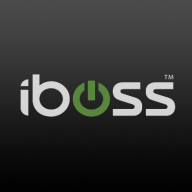


CloudLock and Cisco Umbrella compete in the security solutions category, catering to tech buyers. Cisco Umbrella seems to have the upper hand due to its superior features, which justify the higher cost.
Features: CloudLock offers comprehensive cloud application security, ensuring visibility and control over data, with a cloud-specific security focus. Cisco Umbrella excels in advanced threat detection, internet activity monitoring, and broader threat intelligence, emphasizing DNS-based protection and web content filtering.
Room for Improvement: CloudLock could enhance its feature set and threat detection capabilities compared to broader solutions. Better integration with existing systems would also be beneficial. Cisco Umbrella, while robust, could improve its pricing structure for budget-conscious clients and simplify certain administrative processes. Enhancements in customer feedback integration and endpoint integration could be valuable.
Ease of Deployment and Customer Service: CloudLock is known for straightforward deployment and efficient customer service, providing personalized support and minimal disruption. Cisco Umbrella offers seamless integration and automated processes, making it a strong choice for easy deployment and scalable solutions, prioritizing integration with existing infrastructure.
Pricing and ROI: CloudLock is competitive, offering promising ROI, appealing to organizations mindful of budgets. Cisco Umbrella's higher initial cost is justified by comprehensive security features that provide significant long-term value, ensuring a robust security posture and extensive threat coverage.
| Product | Market Share (%) |
|---|---|
| Cisco Umbrella | 9.9% |
| iboss | 2.5% |
| CloudLock | 0.7% |
| Other | 86.9% |

| Company Size | Count |
|---|---|
| Small Business | 6 |
| Midsize Enterprise | 6 |
| Large Enterprise | 5 |
| Company Size | Count |
|---|---|
| Small Business | 49 |
| Midsize Enterprise | 30 |
| Large Enterprise | 51 |
Iboss offers a comprehensive cloud-based security platform valued for its scalability and autonomous features, ensuring robust security with easy deployment and management capabilities.
Renowned for its robust security architecture, Iboss integrates seamlessly within diverse networks, delivering efficient granular filtering and advanced content categorization. Its single pane of glass console provides ease of management, allowing rapid scalability suitable for rapidly deploying environments. Operates in BYOD setups due to inline filtering without device installation. Integration with cloud-based applications enhances user control, and features like SASE, SSL inspection, and ChatGPT risk protection stand as highlights. Despite its strengths, users have pointed out areas for enhancement like direct navigation in reports, SSL decryption, and better cloud integration while having room to improve data loss prevention.
What are the most important features of Iboss?The usage of Iboss spans educational institutions, specifically K-12, to enforce internet policies, protect data, and support remote work environments. It provides web filtering and security frameworks to ensure safe browsing. Its platform-as-a-service model offers flexibility for both cloud-based and on-premises requirements, integrating seamlessly to deliver enhanced security features suitable for various deployment needs including zero trust, CASB, and network security for work-from-home setups.
Cisco Umbrella provides fast-deploying DNS-layer security with powerful threat protection capabilities. Trusted by over 30,000 entities, it ranks highly in DNS security and effectively supports secure remote work environments.
Cisco Umbrella offers comprehensive DNS security, web filtering, and ease of use, enhancing network security through robust threat protection and malware prevention. It processes over 600 billion requests daily, making it a leader in its field. The seamless integration with existing infrastructures and cloud-based nature makes it suitable for remote and distributed work environments, ensuring consistent security throughout. Management is streamlined with a single-pane interface that simplifies administration, while in-depth reporting capabilities provide valuable insights for continuous monitoring.
What are the key features of Cisco Umbrella?Cisco Umbrella is widely adopted in industries requiring advanced DNS-level security to counteract malware, phishing, and cyber threats. Its ability to monitor and protect remote and roaming employees makes it an attractive option for sectors highly dependent on cloud services. By managing DNS queries and blocking harmful sites, Cisco Umbrella enhances cybersecurity across networks, providing an added layer of protection for businesses worldwide.
CloudLock is a cloud security platform that provides organizations with visibility, data security, and compliance solutions for cloud-based applications and services. It focuses on securing data in popular cloud platforms, such as Google Workspace (formerly G Suite) and Salesforce.
CloudLock Benefits:
CloudLock Features:
CloudLock helps organizations enforce data loss prevention policies in the cloud. It monitors and controls the sharing, storage, and usage of sensitive data within cloud applications, preventing unauthorized access and data leakage.
The platform incorporates threat intelligence capabilities to detect and respond to cloud-based threats. It leverages machine learning algorithms and behavioral analytics to identify suspicious activities, malware, account compromises, and other security risks.
CloudLock enables organizations to enforce granular access controls for cloud applications. It allows administrators to manage user permissions, apply multi-factor authentication (MFA), and monitor user behavior to detect anomalies and potential insider threats.
CloudLock assists organizations in meeting compliance requirements by monitoring cloud applications for data privacy regulations and industry standards. It provides detailed reporting and auditing functionalities to demonstrate adherence to regulatory frameworks.
The platform helps organizations discover and gain visibility into unauthorized or risky cloud applications used within their network. It allows IT teams to assess risks, enforce policies, and take appropriate actions to manage and control cloud usage effectively.
We monitor all Cloud Access Security Brokers (CASB) reviews to prevent fraudulent reviews and keep review quality high. We do not post reviews by company employees or direct competitors. We validate each review for authenticity via cross-reference with LinkedIn, and personal follow-up with the reviewer when necessary.